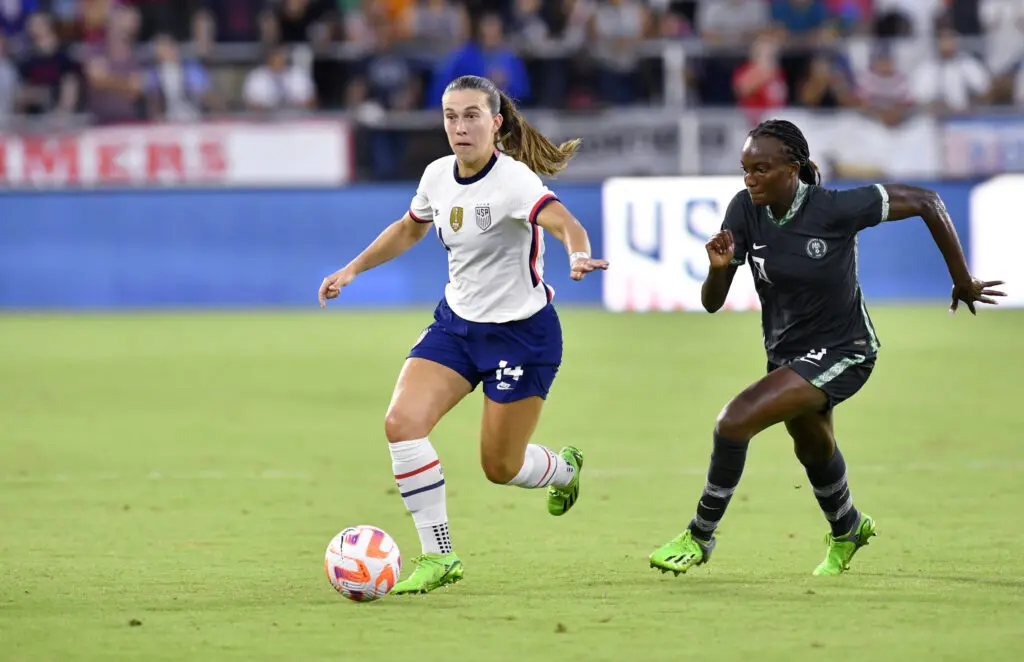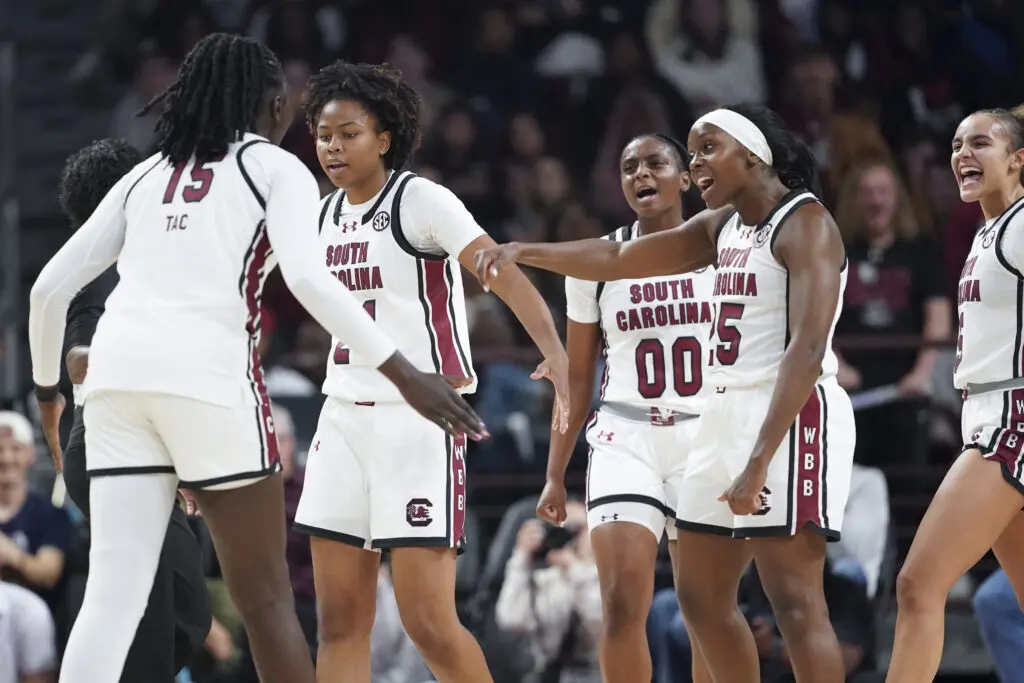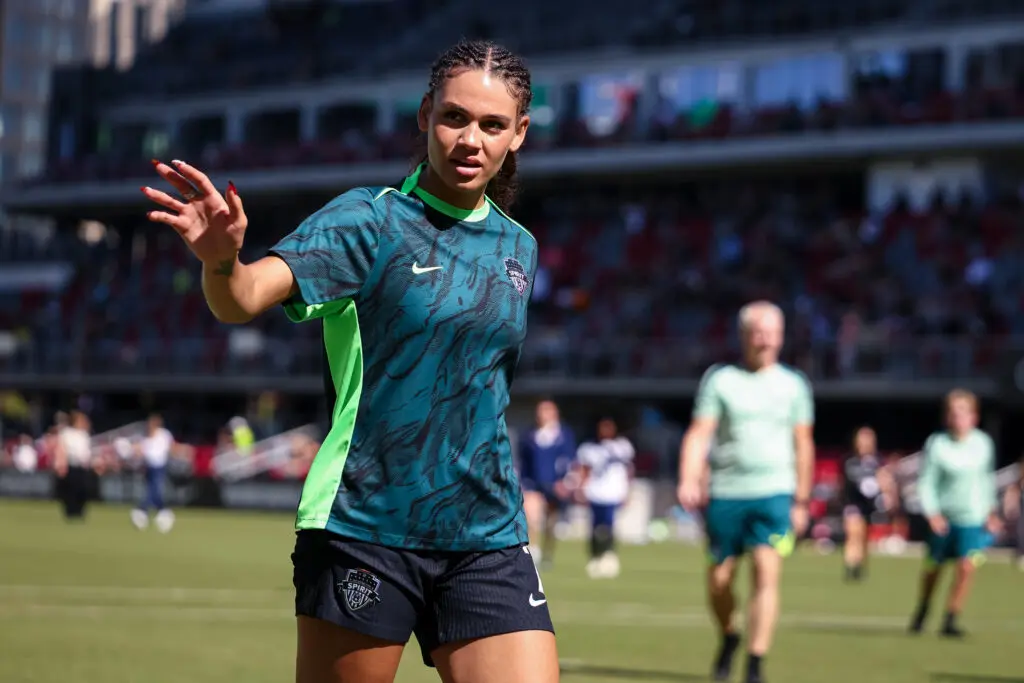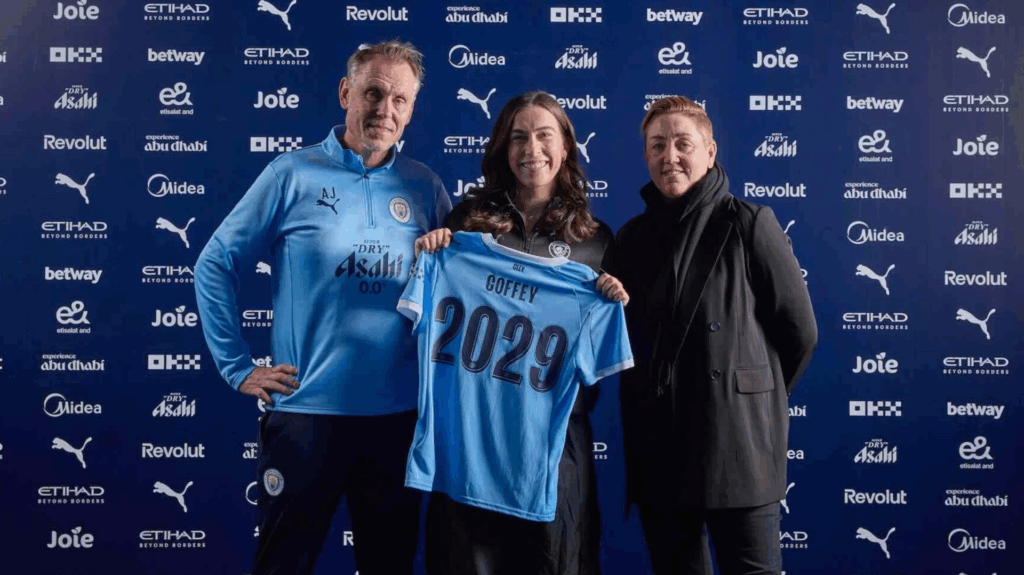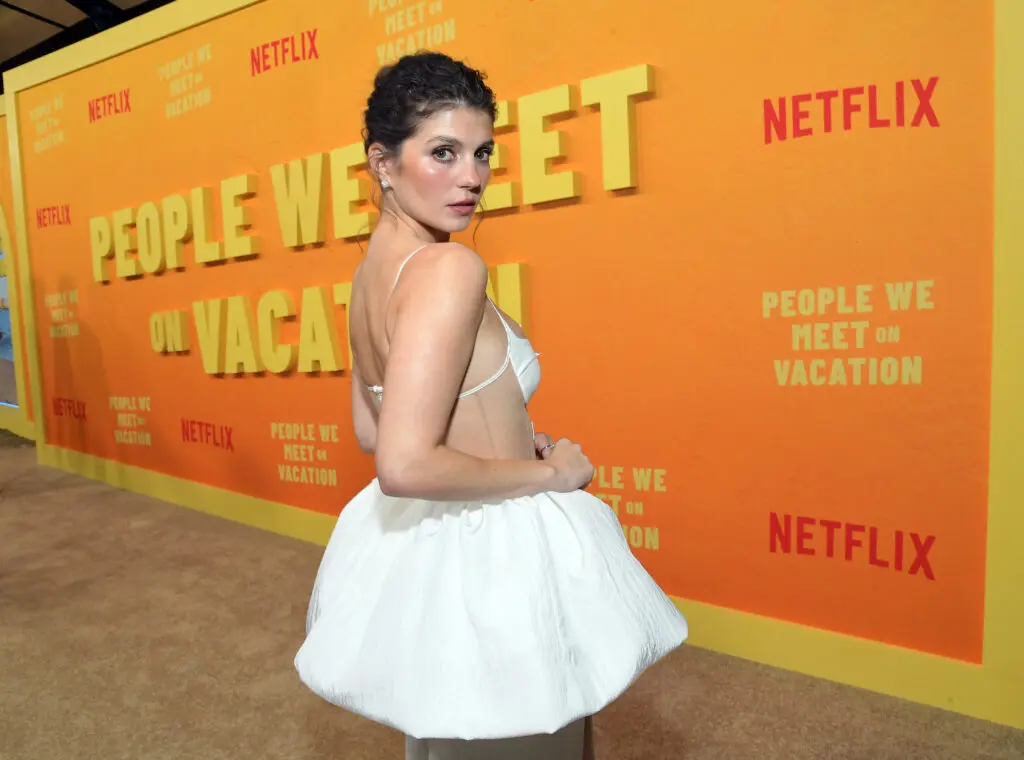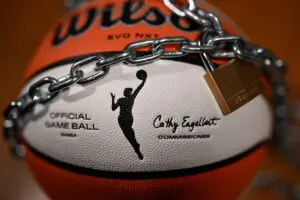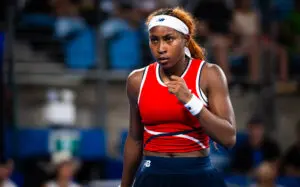Sam Coffey was sitting in front of a blank, white wall in the little house she had moved into in Portland last month after leaving the Thorns’ team housing. She was reflecting back on January, when she had no idea what to expect for her rookie NWSL season with the club.
The 2021 No. 12 overall draft pick admits that if she had been told at the beginning of 2022 that the next 11 months would go the way they did — including an NWSL championship, a league Best XI honor, her first cap with the U.S. women’s national team and a Concacaf W title that secured the USWNT’s spot in the 2023 World Cup — she would have laughed.
Coffey had arguably the most exciting year of any professional soccer player in the United States. One of the biggest reasons for that is a picture that hangs on her mirror.
Hardly anything is organized yet in her new house, she says, besides a photo of a young, grinning Sam with shin pads that were as big as her love was for soccer. A small kid from Sleepy Hollow, N.Y., Coffey used to spend her spare time practicing volleys in school yards or going down to her basement to work on first touches.
Nowadays, Coffey peeks at that picture before she heads off to practices and games.
“Looking at that photo of myself, I’m like, you’re the same kid,” she says. “You have the same love for it, you have the same joy for it. Don’t lose that … I think a lot of people lose that love as they go higher and higher in levels of soccer with more pressure.
“I can’t ever let that become a reason that I don’t love it or don’t do it every day.”
Before arriving at Thorns preseason in February, Coffey made a commitment that she would bring a fun spirit and the best of herself to training every day, taking in each moment as an exciting adventure. The way she’s preserved her joy for the game is what her father, Wayne Coffey, says he and Sam’s mother are most grateful for.
“It’s so easy to lose that, and she never has,” he says. “She loves the game more today at age 23 than she did when she was in first grade.”

Besides her personal goal, Coffey went into the first preseason of her pro career with no expectations. The former Boston College and Penn State midfielder was joining one of the best women’s soccer teams in the world and wasn’t anticipating much playing time at all. The club was stacked with legends, like World Cup champions Becky Sauerbrunn, Meghan Klingenberg and Crystal Dunn, and Olympic gold medalist Christine Sinclair.
True to her word, Coffey kept showing up, soaking up every little bit of knowledge and applying it to her game. The team captain noticed. After one of the Thorns’ preseason scrimmages, Sinclair, the world’s all-time leading goal scorer, walked up to Coffey and told her, “You’re f–king good.”
At the time, Coffey wasn’t even playing a position she was comfortable with. Right after Coffey’s fifth college season ended with the Nittany Lions, one in which she thrived as an attacking midfielder, then-Thorns head coach Rhian Wilkinson called her to tell her she was going to play at the six or the eight in the NWSL.
Coffey had stepped in at the six before, when a college teammate was injured, but she preferred to be in a position where she could create and attack opposing defenses. Defensive midfield felt like dirty work.
She wasn’t about to express that to her first pro coach, though. In fact, she didn’t hesitate at all. Whatever the team needed, she was ready to embrace. Coffey would have inflated balls and set up cones if that’s what they’d asked her to do.
It was the same when she was asked to play defensive midfield at Penn State. She went into her coach’s office with a notepad, seeking game film that would help her prepare. She knows every teammate and coach in her path has something to offer, and so she wants to learn it.
Penn State coach Erica Dambach instills that growth mindset into her players, and especially those who have the potential to continue their soccer careers beyond college.
“Those players that come in wanting to learn, wanting to get better, knowing that you never stop learning — you just saw them continue to grow and invest in themselves and build their own house,” she says.
Watching those game clips, Coffey found ways to have fun even when she messed up. She’d notice a mistake, laugh at herself and say, “What am I doing? Why am I doing that?” But she could also acknowledge when she did something well.
Coffey’s passion for learning has carried into her pro career, where she adjusted to the quick pace of the NWSL and started to make plays in two touches instead of trying to dribble around her opponents, just as her college coaches had warned her.
By the second month of her first NWSL regular season, Coffey’s contributions at the six earned her the league’s June Rookie of the Month honor. That same month, she received her first call-up to the USWNT, where she also played as a defensive midfielder.
It was shocking to her when she realized how much she had grown to love the position. She didn’t know if it was because she was getting more acclimated to it or because she enjoyed a new challenge. All Coffey knew was that she was fully coming into her own as a player. Wilkinson said all season that she wanted Coffey to get a doctorate in the six, and Coffey fully embraced the challenge. (Wilkinson resigned as Thorns coach on Dec. 2 following an investigation into personal communications with a player.)
“I felt like I could help be the quarterback of the team,” Coffey says. “I could help instill rhythm into the team. I could slow the game down if that’s what we needed. I could speed it up if that’s what we needed.”
By the end of the year, she had four caps with the national team and was an NWSL Rookie of the Year finalist, averaging an 82.4 passing success rate and 20 starts in 21 games played for the Thorns.
“It was like she was meant to play that position,” Wayne says.

After her banner rookie year, which included a contract extension with the Thorns through 2025, the bar is much higher entering 2023. Coffey still plans to start the new year the same way she did 2022: no expectations, no complacency.
“[Last year] was wonderful,” she says, sitting in front of that blank, white wall. “But this is a new year, a new adventure. Success is earned, not given. I’m not riding the high of past successes. Those were great things and I’m so grateful for them, but they’re done now.”
Coffey’s new home is primed to be decorated and furnished, just like the rest of her soccer career. “Build your own house,” as Dambach says.
“You’d better invest in yourself,” she tells her players. “You’d better recognize that it’s way more than just playing matches if you’re going to achieve your goals.”
Coffey knows the root of success will always come from inside herself.
Outside her window is a school yard, like the ones she used to practice her volleys on at home in New York, wearing a wide grin and oversized shin pads.
“Watching these kids outside play, like I love watching little kids’ soccer games,” Coffey says, pointing to the window. “This is it, this is the reason you play. That was you. That was literally you.
“I don’t want to lose sight of the joy, I don’t want to lose sight of the fun. I don’t want to not bring the best of myself. … I want to do that fully and authentically and even better than I did last year.”
Jessa Braun is a contributing writer at Just Women’s Sports covering the NWSL and USWNT. Follow her on Twitter @jessabraun.
